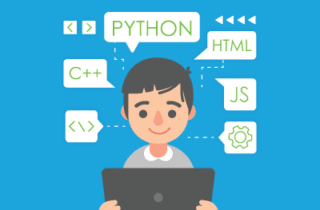This edWebinar will examine best practices in digital literacy instruction including assessment, instructional approaches, and models for ensuring your students master digital literacy concepts and skills so they are prepared to excel in a digital world.
Digital literacy is the ability to understand, use and interact with technology, media and digital resources in real-world situations. Jeff Meyer, Director of Education at Learning.com, during a recent edWebinar, underscored that while this generation of students is growing up using technology, they generally lack the digital literacy skills they need for success by the time they enter high school. The tech and core standards of organizations such as ISTE, CSTA, and Common Core State Initiative stipulate that students need foundational digital literacy skills to demonstrate writing, reading, and mathematical achievement. It is imperative that students are prepared to enter high school ready for the rigors of writing advanced essays, conducting internet research, engaging in data collection, presenting ideas and drawing conclusions.
In this edWebinar, learn a practical approach to helping students avoid one of the major pitfalls of today’s digital media: falling for fake information.
In this edWebinar, learn about the 12 essential digital literacy skills that every student should master before entering high school.
In this edWebinar, Ben Cogswell, presents strategies for teaching students to be effective researchers and critical consumers of online media.
In this edWebinar, gain practical strategies and skills for navigating the landscape of fake news and helping students think critically.
In this edWebinar, Marcos Navas, Technology Facilitator from Union City Public Schools, shows how to prepare your students for their future using coding.
Dignity—it’s not a word often associated with social media and online interaction. However, as part of a new education program from Seton Hall Law School’s Institute for Privacy Protection, communication, community, and dignity are key themes of the curriculum. Overall, the goal is to educate students and parents about privacy and technology overuse. But they try not to shame the students and parents, said Gaia Bernstein, law professor and director, Institute for Privacy Protection at the Seton Hall University School of Law, and Najarian Peters, Assistant Professor, Institute for Privacy Protection at Seton Hall Law School. During the recent edWebinar, “Educating Students and Parents About Privacy and Technology Overuse,” they explained it’s counterproductive to become another authority figure telling students what not to do. Instead, by encouraging students to share their stories and having them explain how technology impacts their lives, the program gives students the agency to take control over their technology use.
In this edWebinar, Gaia Bernstein and Jari Peters present a program that highlights the importance of developing a healthy online/offline balance and more.
In this edWebinar, Jeff Meyer examines the need for standards-aligned assessment data to drive digital literacy programs in schools and districts.









